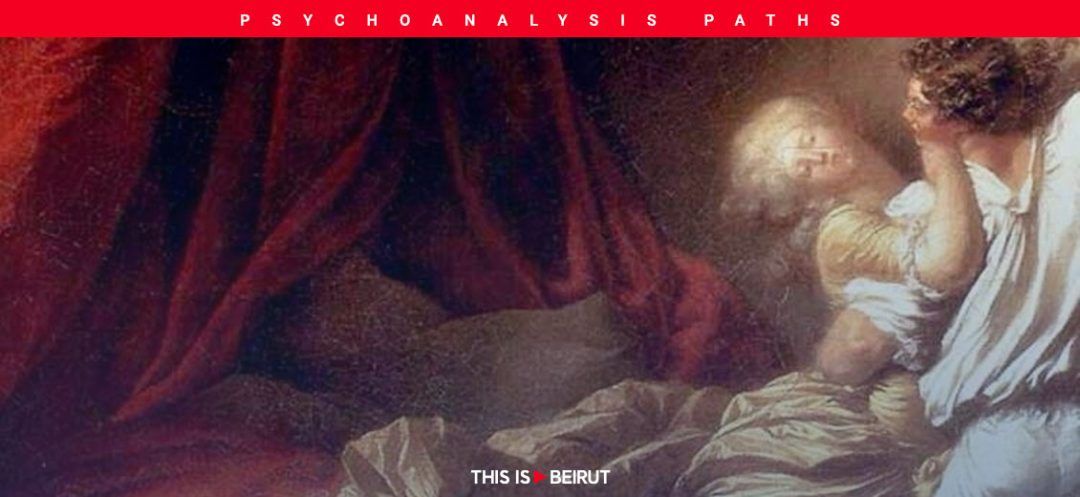
©"The Lock" by Jean-Honoré Fragonard.
Every week, we invite you to explore a striking quote from a great psychoanalyst to reveal all its depth and richness. These lapidary, often provocative formulas open up new perspectives on the intricacies of the human psyche. By deciphering these quotes with rigor and pedagogy, we invite you on a fascinating journey to the heart of psychoanalytic thought to better understand our desires, anxieties and relationships with others. Ready to dive into the deep waters of the unconscious?
In psychoanalysis, the notion of desire occupies a central place, especially in the theory of Jacques Lacan. It should not be confused with need: need is conscious and satisfied concretely with a real object; it pertains to the vital necessities of human beings such as eating, drinking, sleeping, etc. Whereas desire is unconscious and only satisfied in our fantasies, like in dreams, for example.
As we have seen, there is only desire in response to a lack, that of the intense pleasure experienced by the infant in its first relationship with its mother, this profound satisfaction, real or hallucinatory, which has left indelible traces in the unconscious adult psyche and which it is desperately seeking. For Freud, one can only desire what one has known and… lost, but which proves to be indestructible.
By this statement, Lacan proposes a new ethic that is not based on conventional societal injunctions but on subjective singularity, on one’s being as a desiring subject. In this sense, not yielding one’s desire is to remain faithful to what emanates from the innermost part of a subject. The opposite, that is, yielding one’s desire, is to betray one’s true self, a form of existential cowardice that engenders a sense of guilt whose cause is consciously unknown. This guilt is a sign that we have betrayed our desire, that we have yielded what is most dear to us, the consequence of which is alienation to a superego imposed by the community for its own selfish satisfaction. It is fitting, therefore, to question the sociocultural ideals of the “Good,” the “Beautiful,” the “Correct,” the “Hygienic,” the “Physical or mental health,” etc., established as panaceas that a body and psyche that have become consumerist objects are dutifully and pleasurably reminded of, every moment, by smart watches and phones. To illustrate this ethic of desire, Lacan often uses the example of Antigone, daughter of Oedipus, heroine of the tragedy by Sophocles. Antigone chooses to bury her brother Polynices against the law of the city decreed by her uncle Creon, thus remaining faithful to her desire even unto death. She embodies the ethical position of one who does not yield their desire, who goes to the end of what their being dictates, even if it leads to their demise. Antigone thus becomes a paradigmatic figure of Lacanian ethics, showing that the ethical act par excellence is one that demonstrates absolute fidelity to desire.
In the realm of psychoanalytic clinic, diverging profoundly from other therapies with adaptive goals, the aim of the therapeutic is not to eliminate symptoms or to normalize the patient but to allow them to assume their desire, to confront the truth of their being. This may lead to radical life choices, to breaks with social or family expectations, but it is at this price that the subject can emerge in their singularity.
On a broader level, Lacanian ethics invite us to rethink our relationship to the law, transgression and guilt, showing us that blind conformity to norms can be a betrayal of our desire and that the authentic ethical act is one that assumes the risk of singularity, even if it leads to a certain solitude. It reminds us that we are fundamentally beings of desire, and that it is in fidelity to this desire that our most intimate truth resides.
Lacan does not invite us to unlimited hedonism or gratuitous transgression when he asserts that “the only thing one can be guilty of is having yielded one’s desire.” Rather, he reminds us that our desire is what we have that is most precious and most proper, and that the fundamental ethical challenge is not to betray it, not to yield what constitutes us as unique subjects. This thought, demanding as it is, opens new perspectives on our relationship to ourselves and others and invites us to a form of existential authenticity and courage. It turns psychoanalysis not only into a therapeutic practice but also into an ethic of life, a compass for navigating the intricacies of desire and subjectivity.
Because, in the end, the structural lack of desire is anything but a standstill. It constitutes, on the contrary, an invitation to a (re)creation of ourselves in what we have that is most intimate and, consequently, most necessary for our existence. Spinoza, whom Lacan was inspired by, conceives of desire as a force, an impulse to act, notably because it is at the foundation of our most fundamental affects. His famous statement is enlightening: “We do not desire a thing because we judge it good, but we judge it good because we desire it.”
Read more





Comments